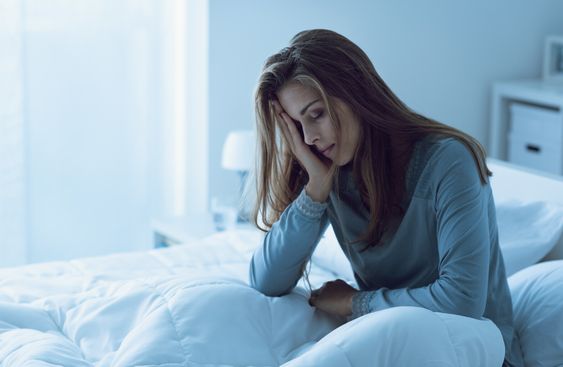Introduction
Sleep is an essential human need, just like eating, drinking, and breathing. It allows our bodies and minds to rest, repair, and rejuvenate. When we consistently don't get enough sleep, we experience sleep deprivation, which can significantly impact our physical and mental health, mood, and overall well-being.

Sleep deprivation occurs when you don't get enough sleep, or when the sleep you get is poor quality and doesn't allow you to cycle through all the sleep stages necessary for feeling refreshed and alert. While the amount of sleep each person needs varies, most adults generally require 7-9 hours of quality sleep per night. Children and teenagers need even more.
Signs and Symptoms of Sleep Deprivation
Recognizing the signs of sleep deprivation is crucial for taking timely action. You might be sleep-deprived if you experience:
- Excessive Daytime Sleepiness: Feeling drowsy and struggling to stay awake during the day, even after having caffeine.
- Difficulty Concentrating: Experiencing brain fog, difficulty focusing, and problems with memory and decision-making.
- Irritability and Mood Swings: Feeling more irritable, short-tempered, anxious, or depressed than usual.
- Weakened Immune System: Getting sick more frequently due to a weakened immune response.
- Physical Symptoms: Headaches, dizziness, fatigue, slowed reaction time, and impaired coordination.
Causes of Sleep Deprivation
Sleep deprivation can stem from various factors, including:
- Lifestyle Factors: Shift work, irregular sleep schedules, jet lag, and late-night social activities.
- Medical Conditions: Sleep disorders like insomnia, sleep apnea, restless leg syndrome, and chronic pain conditions.
- Psychological Factors: Stress, anxiety, depression, and other mental health conditions.
- Environmental Factors: Noise, light, uncomfortable temperature, and an uncomfortable sleep environment.
- Medications or Substances: Certain medications, caffeine, alcohol, and nicotine can interfere with sleep.
Solutions for Better Sleep
Improving your sleep hygiene can significantly contribute to better sleep:
- Establish a Regular Sleep Schedule: Go to bed and wake up around the same time each day, even on weekends, to regulate your body's natural sleep-wake cycle.
- Create a Relaxing Bedtime Routine: Engage in calming activities like taking a warm bath, reading, or listening to soothing music before bed.
- Optimize Your Sleep Environment: Make sure your bedroom is dark, quiet, and cool, and invest in a comfortable mattress, pillows, and bedding.
- Limit Screen Time Before Bed: The blue light emitted from electronic devices can interfere with melatonin production, making it harder to fall asleep.
- Avoid Caffeine and Alcohol Before Bed: These substances can disrupt your sleep cycle and prevent restful sleep.
- Exercise Regularly: Physical activity can improve sleep quality, but avoid exercising too close to bedtime.
- Consult a Healthcare Professional: If you suspect an underlying sleep disorder or have persistent sleep problems, consult a doctor or sleep specialist.
Conclusion
Sleep deprivation can have significant consequences for your health and well-being. By understanding the signs, causes, and solutions for better sleep, you can prioritize sleep and improve your overall quality of life. If you're struggling with sleep deprivation, don't hesitate to seek professional help.

.jpg)